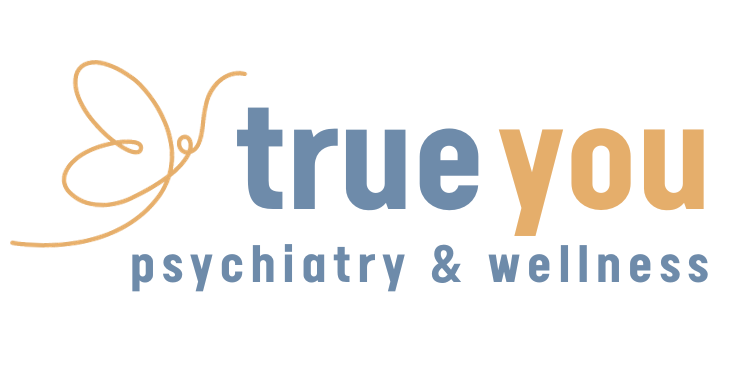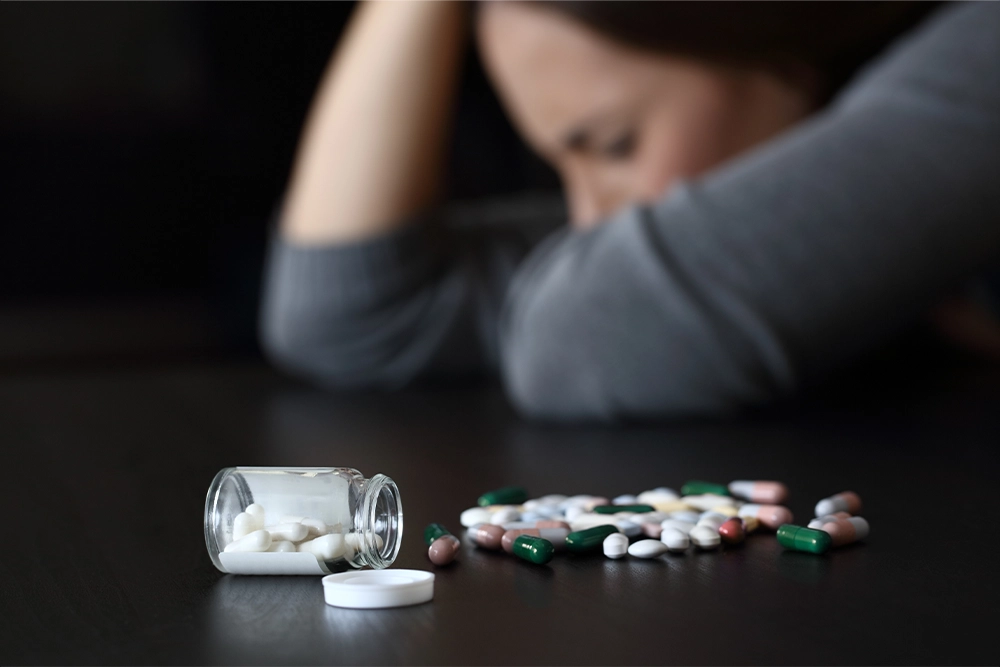Is Zoloft Addictive? Signs & How to Recover
Medically reviewed by Dr. Jennifer Giordano, DO
Starting a medication like Zoloft can raise concerns about addiction and dependency. Is Zoloft addictive?
While Zoloft is generally not considered addictive like opioids or other drugs of abuse, long-term use may lead to physical dependence and withdrawal symptoms.
Let’s explore the facts, risks, and how to navigate its use safely.
It’s natural to feel concerned about the long-term effects of any medication, including Zoloft.
But Zoloft is not addictive in the traditional sense.
It doesn’t cause cravings or euphoria like opioids.
However, understanding its potential for physical dependence can help you use it safely and confidently.
It is important for anyone taking this medication to be aware of some of the dangers connected with it.
Any withdrawal symptoms should be controlled under the supervision of a doctor to avoid unpleasant outcomes.
For professional guidance, you can book a session with Dr. Giordano here.
Get Help if you experience withdrawal symptoms or concerns about Zoloft dependence.
What You Need To Know About Zoloft?
Zoloft (Sertraline) is an SSRI (Selective Serotonin Reuptake Inhibitor) antidepressant medication prescribed for various mental health conditions.
It is often used in treating depression and anxiety disorders.
It increases serotonin levels, helping regulate mood and reduce symptoms of depression and anxiety.
Role of Serotonin in Zoloft Mechanism
Zoloft helps maintain balanced serotonin levels, improving mood and reducing symptoms of depression, anxiety, and related conditions.
Uses as an Antidepressant Medication
Zoloft is used primarily as an antidepressant drug. It is effective in treating various mental health conditions and mood disorders, including:
Major Depressive Disorder (MDD): Zoloft assists in mitigating some of the signs associated with depression, which may include sadness, lack of appetite, and hopelessness.
Anxiety Disorders: It is administered in patients suffering from Generalized Anxiety Disorder (GAD), Panic Disorder, and Social Anxiety Disorder to minimize anxiety and panic attacks.
Obsessive-Compulsive Disorder (OCD): Zoloft is used to lessen the severity of Obsessive Compulsive Disorder symptoms like obsessive thinking and compulsive behavior.
Post-Traumatic Stress Disorder (PTSD): It also helps in cases where symptoms involve traumatizing elements, like flashbacks and major anxiety.
Premenstrual Dysphoric Disorder (PMDD): Zoloft helps in the relief of severe premenstrual fluctuation in mood, irritability, and depression.
Symptom Relief
Depression:Zoloft can provide relief from overwhelming feelings of hopelessness, fatigue, and disrupted daily activities, such as difficulty sleeping or eating. By helping to restore balance, Zoloft empowers individuals to regain a sense of control and improve their quality of life. If you’re struggling with daily activities or emotions, this medication may help pave the way to better mental health.
Mood swings: Zoloft assists in regulating mood swings such that one can control moments of madness mood swings that may result from Bipolar Disorder or PMDD. It also helps people keep a steadier emotional state, which is good for health or well-being.
Anxiety: It is one of the main conditions that are treated using Zoloft is anxiety. Lack of focus and worry, social anxiety, panic attacks, and general anxiety disorder all benefit from the reduction of fear in those who take Zoloft. It helps people reduce their anxiety levels and effectively participate in social, work, and other day-to-day activities.
By improving serotonin levels, Zoloft can reduce symptoms of depression, anxiety, panic disorder, and mood swings, allowing individuals to lead more stable lives.
Is Zoloft Addictive or Does It Cause Dependence?
While Zoloft isn’t considered addictive, it can cause physical dependence over long-term use.
This means if you stop taking it abruptly, you may experience withdrawal symptoms.
But this differs from the compulsive drug-seeking behavior seen in substance use disorder.
This is similar to other SSRIs like Lexapro, which may also lead to questions about addiction potential.
Risks and Side Effects of Zoloft
Serotonin Syndrome
Serotonin syndrome is a rare but severe side effect that occurs if serotonin levels become too high, often when combining Zoloft with other serotonergic drugs.
Symptoms include confusion, agitation, rapid heart rate, and high blood pressure.
Common Side Effects
Zoloft, like many SSRIs, can cause a range of side effects. Common side effects experienced by patients include:
Nausea
Diarrhea
Dizziness
Dry mouth
Increased sweating
Fatigue
Insomnia
Weight changes
These side effects are typically mild and often diminish as the body adjusts to the medication.
Severe Side Effects
Sexual Dysfunction: This can manifest in terms of low sex drive, challenges with sexual arousal, or having erections.
Serotonin Syndrome: This condition calls for medical intervention as soon as possible.
Suicidal Thoughts: In young adults, the use of Zoloft may lead to an increased risk of suicidal ideation.
Necessary precautions include proper observation by physicians and family members. It is essential when the patient begins taking the medication or when its doses are changed.
Zoloft Withdrawal Symptoms
Abruptly stopping Zoloft can lead to Zoloft withdrawal symptoms, also known as SSRI Discontinuation Syndrome, which may include:
Electric Shock Sensations ("Brain Zaps")
Vertigo
Hyperarousal
Muscle Fasciculations
Visual Disturbances
Affective Lability
Autonomic Instability
Paraesthesia
Gastrointestinal Disturbances
Increased Sensitivity to Sound
Important: These withdrawal symptoms do not mean Zoloft is addictive in the traditional sense. They indicate physical dependence and the body adjusting to the absence of the medication.
If you’re struggling with managing these symptoms, you may find it helpful to explore holistic approaches to withdrawal and recovery.
Long-Term Use Considerations
Implications of Long-Term Use
Zoloft, like other SSRIs, has its positives, as well as the negatives, when taken for a long-term period.
On the positive side, long-term use brings about the alleviation of signs and symptoms of some mental health disorders.
However, it’s important to be aware of the potential risks:
Physical Dependence: This means that for too long, the body becomes used to the availability of Zoloft. Therefore, it creates a dependence on it. This result indicates that withdrawal symptoms can occur in case this stoppage is done suddenly.
Zoloft Dependence: Zoloft dependency might occur, and such patients may be required to take the drug to avoid withdrawal symptoms.
Adverse Effects: Some common side effects include long-term usage weight gain, sexual dysfunction, impotence, and occasionally emotional unresponsiveness. There is difficulty in feeling the way one would normally do.
Tolerability: In the long term, some patients may have developed tolerance and need larger quantities of the substance to affect the desired treatment again. This would mean increasing the possibility of side effects.
Relevent : My Depression Is Getting Worse - 10 Signs
SSRI Discontinuation Syndrome
SSRI Discontinuation Syndrome is something that can develop if one decides to stop consuming such drugs as Zoloft suddenly.
Symptoms of this syndrome can vary in intensity but often include:
Flu-like Symptoms: These may be things like nausea, headache, or muscle aches.
Sensory Disturbances: For some, the experiences are like electric shock sensations, while others call them “brain zaps.”
Sleep Disturbances: Sleep disturbances may be experienced, such as being unable to sleep or having many dreams.
Emotional Changes: The patients who observe the symptoms are known to have anxiety, changes in mood, and possible irritability.
Dizziness and Confusion: The patient can feel lightheaded and may have episodes where one’s thoughts are not coherent.
What is important to remember is that such symptoms are not a sign of addiction. Instead, they are the body’s reaction to adaptation to the lack of the medication.
Tapering Off
Tapering off involves taking less substance in a certain timeline for the body to adapt.
Key considerations include:
Personalized Plan: A healthcare professional may devise a schedule that best suits the patient and gradually taper the patient off the medicine.
Monitoring: The patient will be constantly checked by a doctor who will make necessary changes to the tapering plan if there are any signs of increasing symptoms.
Patient Education: Patients need to know about tapering schedules and the signs that may indicate withdrawal so that they’ll be able to cope with them successfully.
Medical Supervision
One must consult a doctor before changing the quantities of Zoloft being administered.
A healthcare provider can:
Assess the Need: Find out whether it is safe for the patient to stop taking Zoloft gradually, depending on his / her health condition or plan.
Develop a Treatment Plan: Implement a plan that consists of a tapering, monitoring, and support component.
Address Concerns: This would assist with side effects and withdrawal signs, making the demedicalization process easier.
Ensure Safety: Supervised withdrawal minimizes the chances of slipping back into the symptoms of the mental health disorder being treated.
Treatment Programs
Several treatment programs are available to support individuals dealing with dependence on Zoloft:
Behavioral Therapy: This includes things like cognitive behavioral therapy, during which the patient is taught about their thought patterns and the behaviors tied to their mental health illnesses and medications.
Support Groups: Organizations like the Addiction Treatment Centers ensure that members can find other people just like them to share what they are going through.
Outpatient Programs: These programs provide an opportunity for treatment to be given while the individual is still attending to his or her work and other activities. These services may include a combination of therapy and consultations, prescription of, and adherence to medication, among others.
Get Professional Help Today!
If you or any of your friends rely on Zoloft, it’s high time you address it with the help of a specialist.
Addiction may be present in the form of withdrawal, where a patient cannot quit using the drug without such symptoms as fever, dizziness, and alternate moods. Dr. Giordano from True You Psychiatry believes in patients’ psycho-evaluation and subsequent personalized treatment plans.
This way, the patient gets support not only for dependence but for his or her mental status as well.



